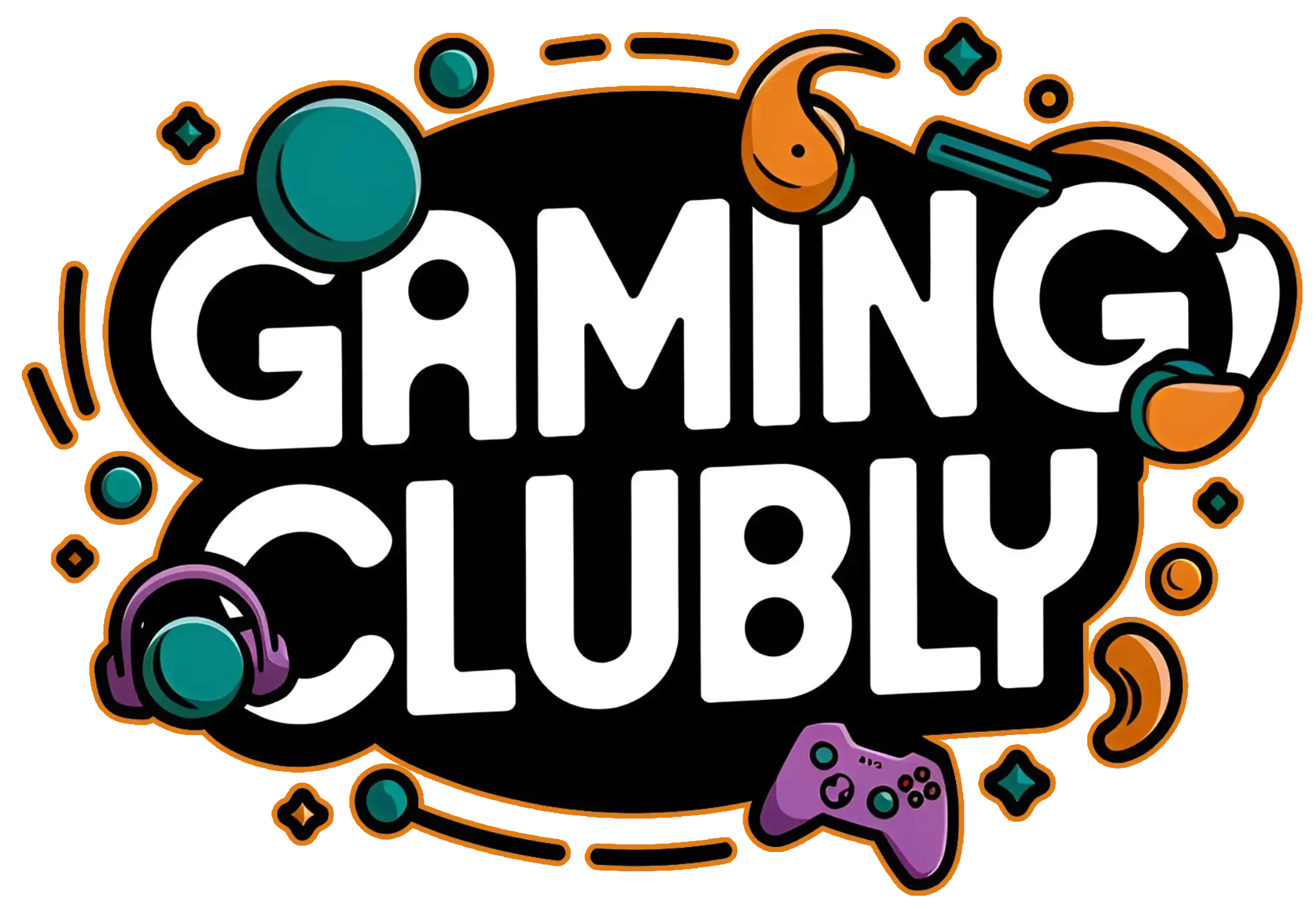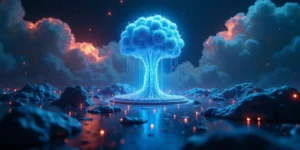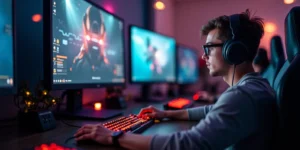Building a Winning Game Development Team: Essential Tips for Success
| Role | Responsibility |
|---|---|
| Game Designer | Creates game mechanics and overall vision |
| Programmer | Develops game code and functionality |
| Artist | Creates visual assets and aesthetics |
| Sound Designer | Produces audio elements and music |
Assembling the right team is crucial for game development success. Here are the key roles you’ll need:

“Building a Winning Game Dev Team: Key Roles & Tips”
#GameDevelopment, #TeamBuilding, #GameDev
- Game Designer: The creative visionary
- Programmer: The technical backbone
- Artist: The visual storyteller
- Sound Designer: The auditory magician
- Project Manager: The organizational mastermind
“Great things in business are never done by one person. They’re done by a team of people.” – Steve Jobs
According to a 2022 survey by the International Game Developers Association, 65% of game developers believe that a diverse team leads to more innovative and successful games.
FAQ: Building Your Game Dev Dream Team
Q: How many people should be on a game development team?
A: The size varies depending on the project scope, but indie teams often range from 5-15 members, while AAA studios can have hundreds.
Q: What skills are most in-demand for game development?
A: Programming (especially C++ and Unity), 3D modeling, and game design are consistently high in demand.
Q: How important is previous gaming experience for team members?
A: While not always necessary, a passion for gaming can greatly enhance understanding and creativity in game development.
5 Tips for Managing a Game Development Team
- Establish clear communication channels
- Set realistic milestones and deadlines
- Encourage creativity and innovation
- Regularly playtest and iterate
- Foster a positive team culture
A study by the Game Developers Conference found that teams with regular playtesting sessions were 30% more likely to meet their release deadlines.
Collaboration Tools for Game Development Teams

| Tool Type | Popular Options |
|---|---|
| Project Management | Jira, Trello |
| Version Control | Git, Perforce |
| Communication | Slack, Discord |
Effective collaboration is the cornerstone of successful game development. Here’s a list of essential tools:
“Essential Tools for Streamlined Game Development Collaboration”
- Project Management: Keep tasks organized and tracked
- Version Control: Manage code and asset changes
- Communication: Facilitate team discussions and updates
- Asset Management: Organize and share game assets
- Playtesting: Gather feedback and analytics
“The strength of the team is each individual member. The strength of each member is the team.” – Phil Jackson
A recent report by Unity Technologies revealed that teams using collaborative tools reported a 40% increase in productivity.
FAQ: Maximizing Team Collaboration
Q: How often should game development teams meet?
A: Daily stand-ups and weekly progress meetings are common, with additional sessions as needed.
Q: What’s the best way to handle creative disagreements in a team?
A: Encourage open discussion, focus on the game’s vision, and use data from playtesting to guide decisions.
Q: How can remote game development teams stay connected?
A: Utilize video conferencing, virtual whiteboards, and regular check-ins to maintain team cohesion.
Best Practices for Team Collaboration
- Implement an agile development methodology
- Use cloud-based collaboration tools
- Conduct regular code reviews and asset critiques
- Organize team-building activities, even virtually
- Celebrate milestones and successes together
According to a survey by the Game Dev Insights platform, teams that celebrated milestones reported 25% higher job satisfaction and improved retention rates.
Building and managing a successful game development team requires a blend of technical expertise, creative vision, and strong leadership. By focusing on clear communication, utilizing the right tools, and fostering a collaborative environment, you’ll be well on your way to creating the next gaming masterpiece. Remember, the journey of game development is as important as the final product, so enjoy the process and learn from each challenge along the way.
For more insights on game development and to connect with fellow developers, check out our Gaming Communities section. If you’re interested in the latest trends in Multiplayer Games, we’ve got you covered. And don’t forget to stay updated with the latest PC News to keep your team at the forefront of gaming technology.
How to Build an Effective Game Development Team: Tips for Success
Assembling and managing a successful game development team is crucial for creating innovative and engaging games. In this article, we’ll explore key strategies to build an effective team and ensure your project’s success.
Key Components of a Successful Game Development Team
| Role | Responsibilities |
|---|---|
| Game Designer | Conceptualize game mechanics and overall vision |
| Programmers | Develop game code and implement features |
| Artists | Create visual assets and establish art style |
| Sound Designer | Produce audio elements and music |
| Project Manager | Oversee development process and timelines |
A well-rounded game development team consists of various specialized roles. Here are the essential team members:
- Game Designer: The creative visionary behind the game concept
- Programmers: Skilled coders who bring the game to life
- Artists: Visual creators responsible for the game’s aesthetics
- Sound Designer: Audio expert crafting immersive soundscapes
- Project Manager: Organizer ensuring smooth development process
“engaging games. In this article, we’ll explore key strategies to”
FAQ: Building an Effective Game Development Team
Q: How many people should be on a game development team?
A: The size varies depending on the project scope, but a typical indie game team ranges from 5-15 members.
Q: What skills are most important for game developers?
A: Key skills include programming, artistic ability, problem-solving, and collaboration.
Q: How long does it take to develop a game?
A: Development time varies greatly, from a few months for simple mobile games to several years for AAA titles.
Steps to Assemble Your Game Development Dream Team

- Define your game concept and required skills
- Recruit talented individuals with diverse expertise
- Establish clear roles and responsibilities
- Foster a collaborative and creative work environment
- Implement effective communication channels
- Set realistic goals and milestones
- Encourage continuous learning and skill development
According to a recent survey by the International Game Developers Association, 33% of game developers consider team dynamics as the most critical factor in project success.
“Team Dynamics: The Key to Game Development Success”
Managing Your Game Development Team Effectively
| Management Aspect | Best Practices |
|---|---|
| Communication | Regular team meetings, clear documentation |
| Workflow | Agile methodologies, version control systems |
| Motivation | Recognition, creative freedom, skill development |
Effective management is crucial for team success. Consider these tips:
- Implement agile development methodologies
- Use project management tools to track progress
- Encourage open communication and feedback
- Celebrate milestones and team achievements
- Provide opportunities for professional growth
“The best way to predict the future is to create it.” – Peter Drucker
FAQ: Managing Game Development Teams
Q: How can I keep my team motivated throughout the project?
A: Regularly communicate the project vision, celebrate small wins, and provide opportunities for creative input.
Q: What are common challenges in game development teams?
A: Scope creep, communication breakdowns, and balancing creativity with technical constraints are common challenges.
Q: How important is diversity in a game development team?
A: Diversity is crucial for bringing varied perspectives and ideas, leading to more innovative and inclusive games.
Building an effective game development team requires careful planning, strong leadership, and a commitment to collaboration. By following these guidelines and fostering a positive team culture, you’ll be well on your way to creating amazing games. For more insights on game development, check out our Game Dev Insights section.
Remember, the success of your game heavily depends on the strength of your team. Invest time in building relationships within your Gaming Communities to find potential team members and gather valuable feedback.
As you progress, consider exploring Multiplayer Games development to expand your team’s skills and create more engaging experiences. Stay updated with the latest PC News to keep your team informed about industry trends and technological advancements.
With the right team and management strategies, you’ll be well-equipped to tackle the challenges of game development and create truly memorable gaming experiences.
| Role | Responsibility |
|---|---|
| Game Designer | Conceptualizes game mechanics and storylines |
| Programmer | Develops game code and implements features |
| Artist | Creates visual assets and animations |
| Sound Designer | Produces audio effects and music |
Building an effective game development team requires a diverse set of skills and roles. Here are the essential team members:
- Game Designer: The creative visionary
- Programmer: The technical backbone
- Artist: The visual storyteller
- Sound Designer: The auditory magician
- Project Manager: The organizational mastermind
“A great game development team is like a well-oiled machine, where each member’s unique talents contribute to creating an unforgettable gaming experience.” – John Carmack, co-founder of id Software
Q: How many people should be in a game development team?
A: The size varies depending on the project scope, but a small indie team can start with 3-5 members, while larger studios may have teams of 50 or more.
Q: What’s the most important skill for a game developer?
A: While technical skills are crucial, adaptability and passion for gaming are equally important for long-term success.
Q: How can I find talented game developers for my team?
A: Network at industry events, participate in game jams, and engage with Gaming Communities to connect with potential team members.
Essential Steps to Assemble Your Game Dev Squad
- Define your game concept and required skills
- Create detailed job descriptions for each role
- Utilize online platforms and industry networks for recruitment
- Conduct thorough interviews and portfolio reviews
- Implement a trial period or project to assess team dynamics
When building your team, don’t forget to explore Game Dev Insights for valuable industry knowledge and trends.
Fostering Collaboration in Your Game Dev Team
| Strategy | Benefit |
|---|---|
| Regular team meetings | Improved communication and alignment |
| Collaborative tools | Streamlined workflow and asset sharing |
| Cross-functional projects | Enhanced creativity and problem-solving |
Effective collaboration is the cornerstone of successful game development. Encourage your team to:
- Share ideas openly and respectfully
- Embrace constructive criticism
- Celebrate milestones and achievements together
- Participate in team-building activities
“Game Dev Insights for valuable industry knowledge and trends. Effective”
FAQ: Nurturing Team Synergy
Q: How can I improve communication within my game dev team?
A: Implement daily stand-ups, use project management tools, and encourage open dialogue between team members.
Q: What’s the best way to handle creative differences in the team?
A: Foster a culture of respect, focus on the project goals, and use data-driven decision-making when possible.
Q: How important is team diversity in game development?
A: Diversity is crucial for bringing varied perspectives, enhancing creativity, and creating games that appeal to a broader audience.
Remember, building a strong team is an ongoing process. Stay updated on the latest PC News to keep your team informed about industry developments.
Leveraging Technology for Team Efficiency

- Implement version control systems for code and assets
- Utilize project management software for task tracking
- Adopt cloud-based collaboration tools for remote work
- Invest in high-quality hardware and development tools
- Encourage continuous learning and skill development
To maximize your team’s potential, explore Multiplayer Games for inspiration on collaborative gameplay mechanics.

By following these guidelines and nurturing a positive team culture, you’ll be well on your way to building an effective game development team that can bring amazing gaming experiences to life.



